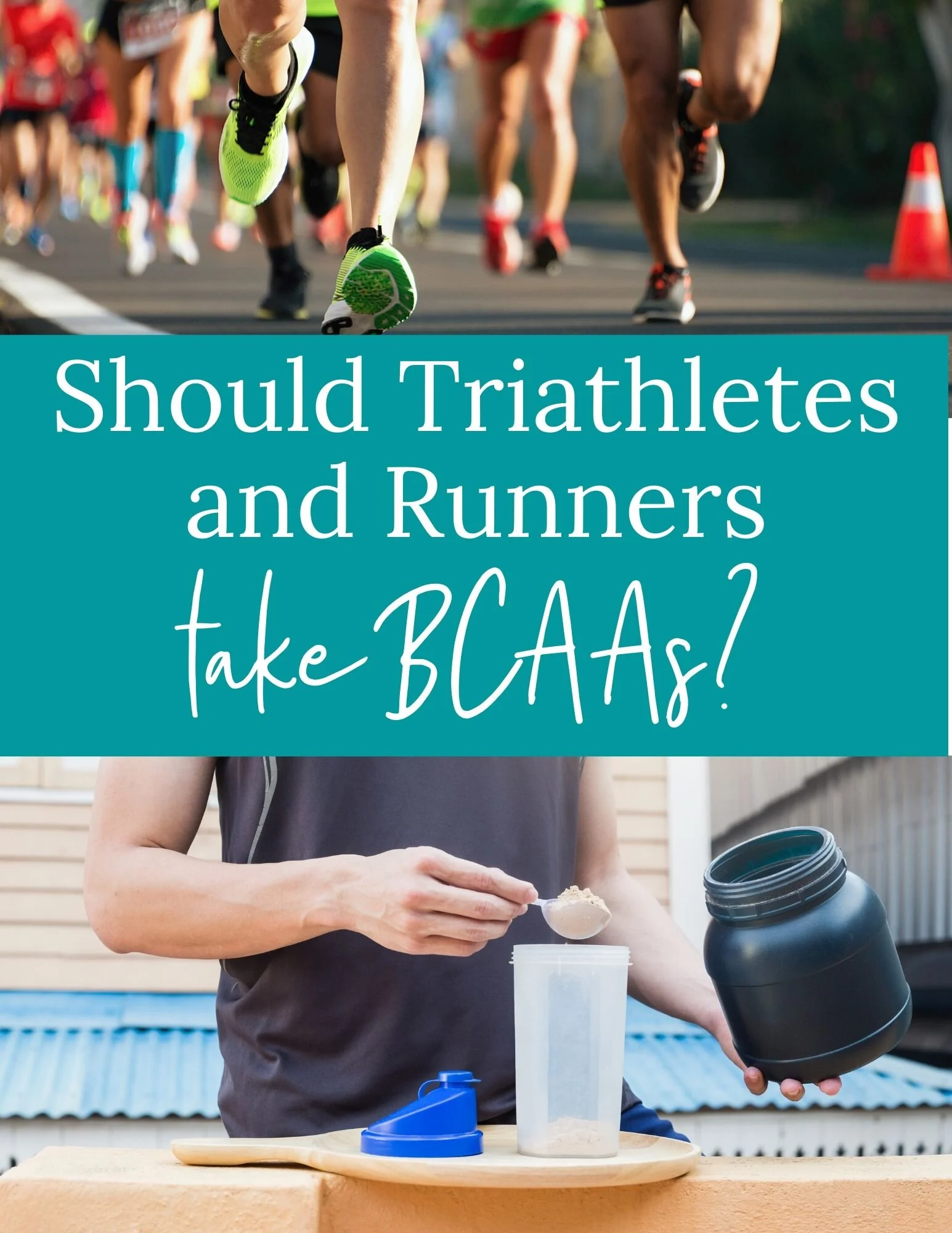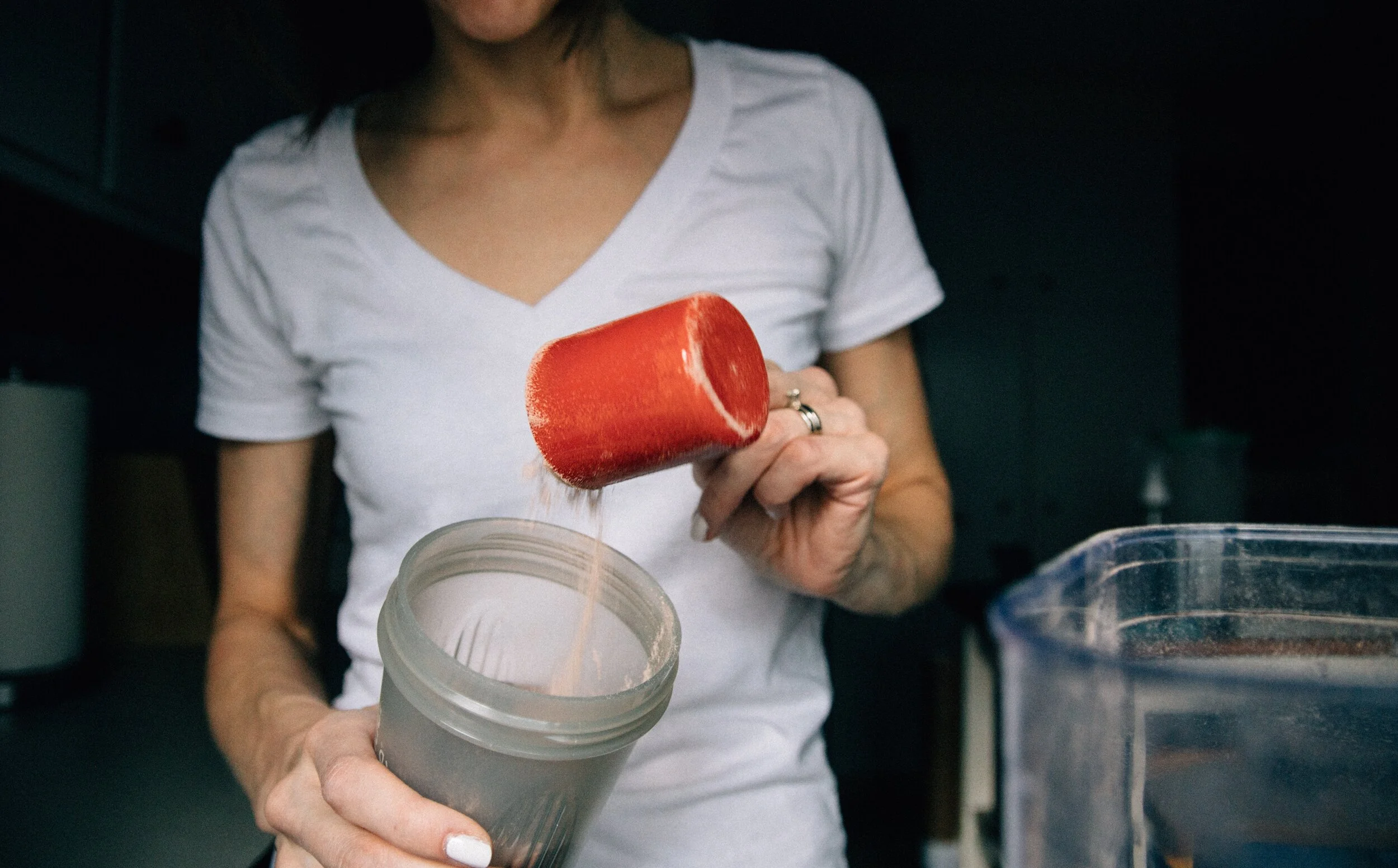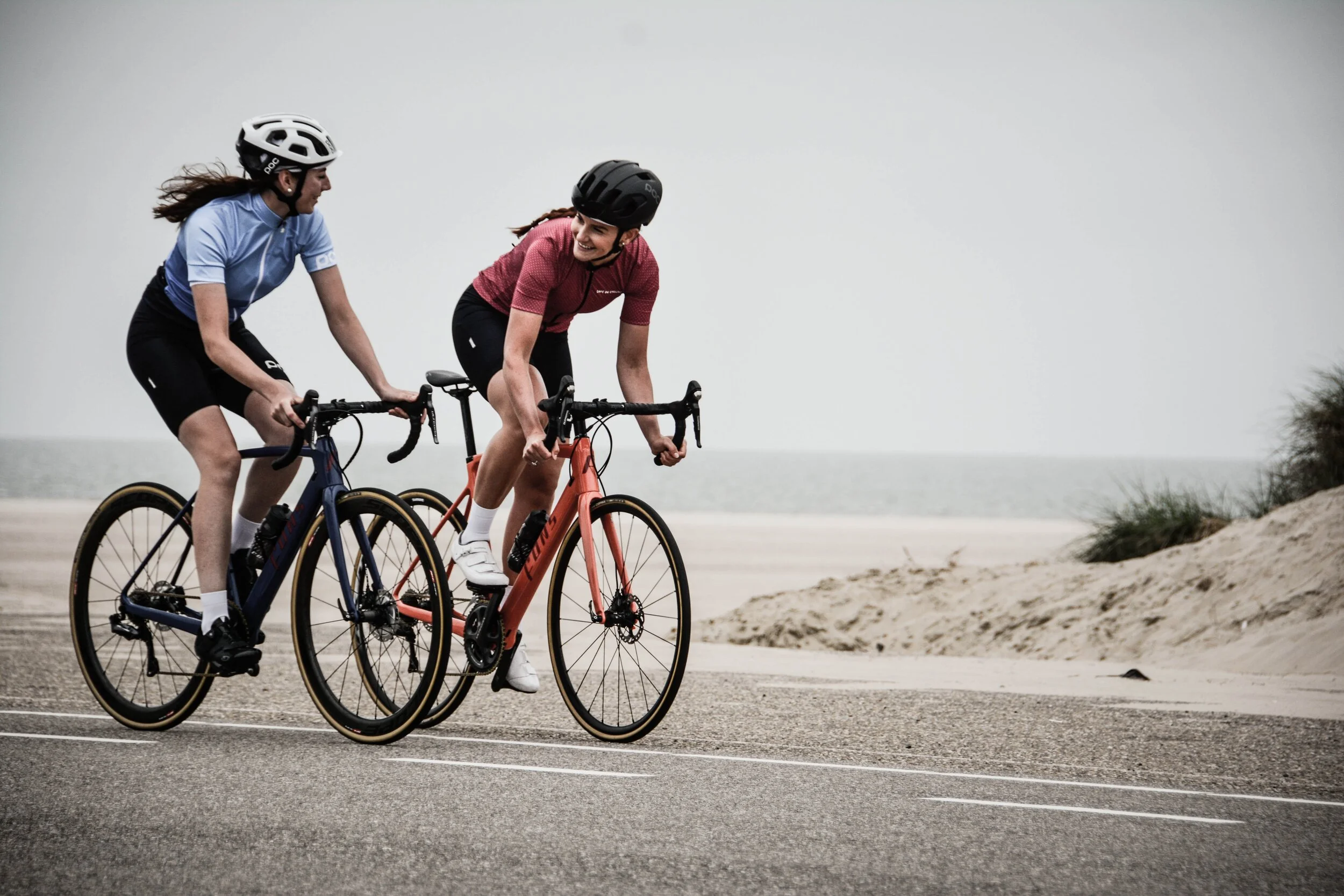Should Runners and Triathletes Use BCAAs?
As an endurance athlete, it’s likely you try to stay up to date on the latest supplements and best sports foods to help you swim, bike, run, and lift better. Anything that can help training feel easier and increase recovery is worth trying.
So you may have seen on social media or read about how many endurance athletes are touting the benefits of Branched Chain Amino Acids (BCAAs) in and around workouts. Should triathletes and runners be taking BCAAs?
What are BCAAs?
First, let’s breakdown what exactly are BCAAs. BCAAs are part of a group of 21 amino acids that are the building blocks of protein, which play critical roles in the body. Amino acids help in the synthesis of hormones and neurotransmitters, build muscle, regulate your immune system, and repair muscle damage, among other things.
Should endurance athletes take BCAAs?
Amino acids are categorized as essential, conditionally essential, or nonessential. Essential means that your body doesn’t make them, and you need to obtain them from your diet. The BCAAs are isoleucine, leucine, and valine, and they are all essential amino acids. “Branched-chain” refers to the chemical structure of the three amino acids.
Why are BCAAs important for athletes?
BCAAs are unique because they can be oxidized in the muscle for fuel and are directly taken up by your muscles rather than first being metabolized by your liver. They have been shown to contribute up to 10% of total energy during aerobic activity (i.e. running, cycling, swimming). BCAAs also work to prevent muscle breakdown during exercise, and when your glycogen stores run low, BCAAs are used for fuel.
BCAAs are especially crucial for athletes because they have been shown to affect:
· Muscle growth, repair, and soreness
· Producing growth hormones
· Protein synthesis
· Reduced fatigue during resistance exercise
· Muscle metabolism
· Hemoglobin production
· Energy regulation
· Immune function
Most of these benefits are seen in resistance and power-based athletes. Studies have shown that after completing power exercises, the markers of muscle damage were significantly less and recovery was faster in groups that supplemented with BCAAs before and after exercise.
Will BCAAs help you recover from running or cycling faster?
Since the research for resistance exercise and BCAAs is so promising, surely this also means runners and triathletes can also benefit from BCAAs supplements?
Unfortunately the research is limited. It seems like endurance athletes can benefit from BCAAs, but there isn’t a ton of research with endurance athletes and BCAAs. Most studies have shown benefits, but keep in mind these studies are small, meaning we don’t know if they can apply to all endurance athletes.
Some research showed that endurance cyclists taking regular BCAA supplementation improved sprint performance and immune function during a cycling season. BCAAs might also reduce muscle damage from cycling.
It also may reduce the Rate of Perceived Exertion (RPE) during the recovery phase of a workout, but this study had cyclists take a BCAA and carbohydrate supplement, so those effects could be related to the carbs and not BCAAs.
Taking BCAAs and carbs together was also shown to reduce post-race fatigue in a group of marathoners, but this was found only in back of packers.
Will BCAAs make you a faster runner or cyclist?
If BCAAs can help you recover, can they also make you faster? The research is mixed and there’s no clear answer.
Athletes in a 100km ultra-marathon took in 20g of BCAAs during their race for a study. Race time was no different for these athletes (i.e. the BCAAs didn’t make them faster) and muscle damage was the same as those who took the placebo.
It would be awesome if BCAAs could improve running performance, but it looks like that isn’t the case.
There’s also buzz among social media that BCAAs can reduce fatigue, but again this has been refuted.
Of the three essential amino acids, leucine is shown to provide the most benefits. One study looked at athletes completing steady state exercise (like swimming, running or cycling) and found that muscle protein synthesis was 33% higher during the recovery period and had lower overall body protein breakdown when athletes took in more leucine than a blend of all three essential amino acids.
Should Vegan or Vegetarian Athletes take BCAAs?
If you are a vegan or vegetarian athlete, you’ve either completely cut out or drastically reduced how much dairy, fish, eggs, and meat you’re eating. Plants and plant-based foods have mediocre amino acid profiles than dairy and meat, so vegans and vegetarians are likely not consuming enough BCAAs.
Plant-based proteins, like quinoa, soy, and chia seeds are essential for plant-based athletes to get enough protein in their diet, but these are often very low or completely lack BCAAs, which as we’ve learned, affect muscle growth and recovery. In fact, if athletes sub animal proteins for plant-based ones, you reduce your leucine intake by about 50%!
Leucine is especially important, not just for the supply of building blocks and energy, but it is an important trigger for muscle protein synthesis induced by training.
For plant-based athletes, supplementing with BCAAs, particularly leucine, is important for muscle growth and maintenance. Athletes should aim to get in 3 grams of leucine every 3-4 hours by either consuming a BCAA supplement or from whole food sources, like nuts, pea protein, soy (especially fiber-free isolated soy protein), beans, and lentils. For reference, beans and peas have about 2-3 g per cup cooked and nuts have 4 g per cup.
Can BCAAs Help with Sports Injuries?
BCAAs are used clinically to boost healing after procedures like surgery or a musculoskeletal injury because new body tissues need to be rapidly made, while also making sure the cells not affected by surgery remain healthy. BCAAs might assist with sports injuries also because they help alleviate muscle atrophy (i.e. wasting) associated with detraining and immobilization. They also have a special capacity to boost protein synthesis and inhibit protein breakdown, which other amino acids don’t have. So if you’re injured, including BCAAs in your diet may help speed recovery and help you keep the muscles you’ve worked so hard for.
How do I get BCAAs in my diet?
Now that you know the benefits of BCAAs, let’s look at the ways you can get them in your diet.
BCAAs and the other essential amino acids are found in any complete protein such as:
· Meat, poultry, and fish
· Eggs
· Dairy products, like whey, milk and cottage cheese
And in plant-based foods like:
· Pea protein
· Lentils and legumes
· Nuts like almonds, cashews
· Chickpeas
Supplements:
Real food should always be the priority over supplements. Most athletes get enough BCAAs from the food they are already consuming.
However, if you are completing your workout on the go or a plant-based athlete, supplements might be your only option.
If you’re also someone who wakes up very early and suffers from GI issues or has a hard time eating before a long run or ride, consuming BCAAs 15 minutes before a workout can be beneficial.
Supplements typically supply twice as much leucine than isoleucine or valine, which is ideal considering the benefits of leucine. BCAA powder can be mixed with a sports drink, which can help the amino acids get to your muscles more quickly. However, taking them in capsule form is easier to transport and can be consumed both before and after training. Also, don’t add a BCAA supplement to a protein powder supplement such as whey protein; there are enough BCAAs in there already. Always make sure your supplement is third-party tested and is marked NSF Certified for Sport
It’s not recommended to take BCAAs during high intensity and jostling activities (i.e. running) but during biking may be ok since you’re stationary. The better goal is to have BCAAs after your workout to aid in recovery and muscle growth.
How much BCAAs do Runners and Triathletes need?
You want to aim for 10-20 g of BCAAs and 3-4 g leucine per meal, but this is a general recommendation. BCAAs supplementation is fairly individualized, based on weight, gender, physical activity, and duration. It’s important to consult with a sports dietitian if you’re unsure about how much you should be supplementing and including in your diet.
Even though the benefits of BCAAs are very clear, it’s imperative that you also include carbs after a workout for proper recovery. Replenishing the lost glycogen stores during a hard workout are key to recovery, training adaptations, and feeling ready to tackle your next run or ride.
Consider pairing a BCAA-rich protein with a carbohydrate for the best post-workout snack, like cottage cheese and fruit; a fruit smoothie with whey protein powder; or a quinoa bowl.
Takeaways on BCAAs:
BCAAs are essential to recovery, muscle protein synthesis, and reducing soreness. They are easy to get in your diet with animal proteins, but plant-based athletes will have to plan ahead to make sure they are getting the recommended 3-4 g of leucine per meal. Supplementation can be used in certain circumstances, but it’s better to obtain BCAAs from real food. If you have questions about BCAAs, we can hop on a phone call and talk about how they can play into your sports nutrition regimen.






